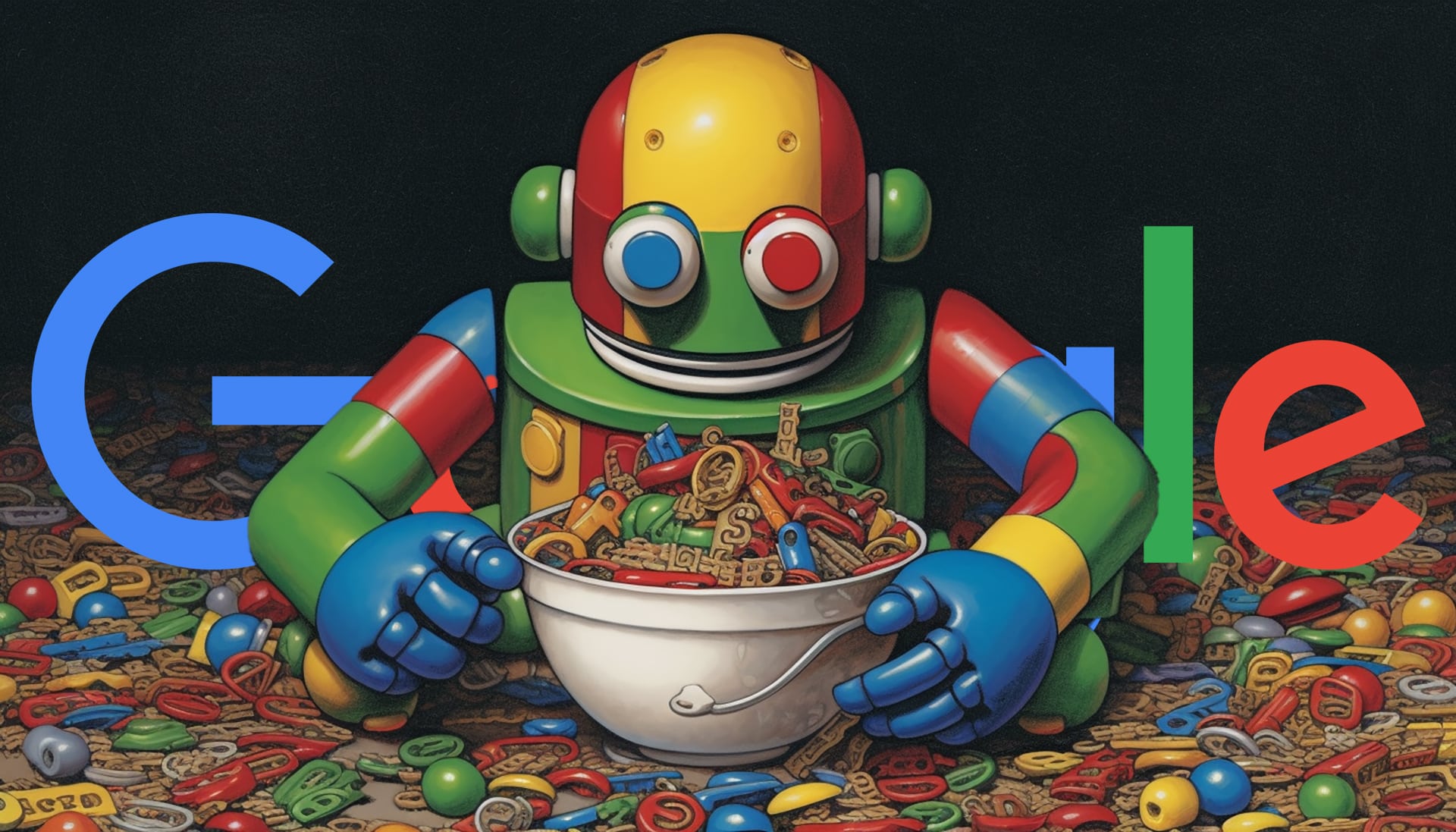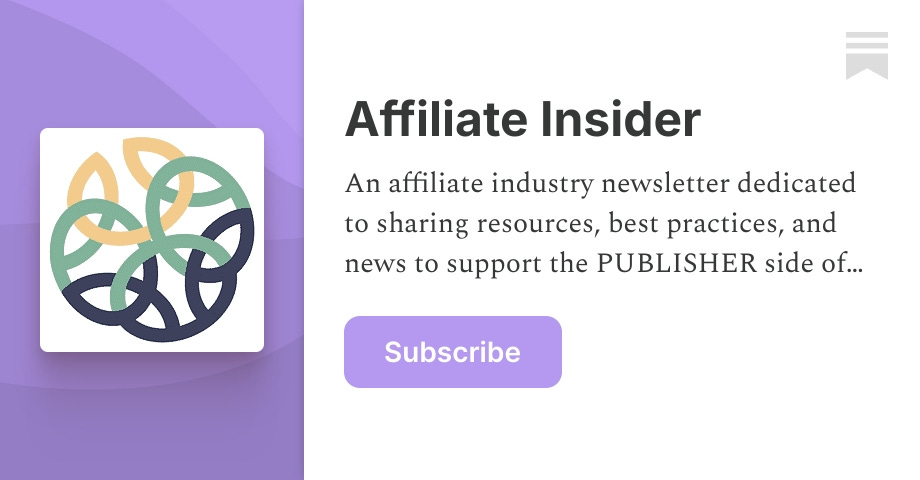- Content Forward: Thoughts from the Front Lines
- Posts
- The NEW Google
The NEW Google
What does this all mean for us in content?
This week all the cool kids are talking about the new Google updates. There’s a lot of chatter right now, but what does this really mean to us?
Well, it really is an exciting time to be in search marketing.
With headlines like “Google Is About To Turn The Online Publishing Industry Upside Down,” it can be tempting to fret about our roles, jobs, and place in this new AI-fueled search landscape.
And, I get that.
But here’s the thing.
We’ve been through changes in our industry before, and us creative, scrappy types always find a way to navigate through them.
But things are changing.
If you really want to dig into what’s really going on with Google search, I suggest you start with this resource from Google itself:
Some highlights from the big Google announcement:
AI is not new to search. These updates are part of the evolution we’ve already been experiencing.
In recent years, breakthroughs in AI have dramatically improved Search. In 2019, we brought Bidirectional Encoder Representations from Transformers (BERT) to Search ranking, resulting in a huge step change in search quality. Rather than aiming to understand words individually, BERT helped Search understand words in the context that they were used, empowering people to ask longer, more conversational queries and get connected with more relevant, helpful results.
This new Search Generative Experience is an experiment.
We don’t know if users will actually like, use and prefer these updates. In the upcoming months, Google is going to have a lot of really smart people evaluating this user data and trying to create a better search experience.
Over the next few months, we can expect to see a lot of fluctuations for sure in the search landscape, but Google’s mission “to organize the world's information and make it universally accessible and useful” doesn’t seem to be changing.
We’ll have to see how this will change CTR, and we might have to pivot to find new ways to get in front of our audiences, but I still believe that great, authentic ‘gems’ of content will have a place in this new world.
There is still a lot of human input here.
Google has been using humans for quite some time to evaluate and rank quality and that is not going to change. Humans are still a big part of training the AI and evaluating the ranking results.
Of course, one of the challenges in having human evaluators is that AI-generated results can seem pretty trustworthy and confident, so we’ll have to see how that plays out.
Anyone that has experimented with Chat-GPT knows that it can produce a really confident and ‘right’ sounding output (every time). Human-created content is more nuanced, and human testers might not recognize those nuances.
Google takes YMYL content seriously. But, the same methods that they are using to evaluate YMYL content will be used to evaluate and rank ALL content.
For now, Google says they are not going to have AI responses to all queries. If there is a lack of quality or reliable information, they won’t have SGE responses. They are also going to have health disclaimers for certain queries. This tells me Google cares very much about its reputation as a trustworthy source of information. We’ve seen with all the Helpful Content updates that they’ve been working on this for years. First, with the YMYL content, but these learnings will impact other types of content as well as Google gets smarter, and better at displaying the ‘most helpful’ results.
Given the trust people put in Search, we were intentional in constraining conversationality.
There’s going to be greater emphasis on real-world experiences and expertise.
We’ve known this for a while, but Google is really trying to get better at displaying experience + unique opinions, ideas and expertise in their search results. Of course, what Google promises and aims for is not always what we see. Still, it’s important to note that we’ll probably see a lot more sites get downgraded (think solely SEO, or inauthentic content created for the purpose of ranking).
As I mentioned before, Google has learned a lot from its YMYL experiments and is getting better at determining what is authentic, true, and helpful content and what is fake content.
We’re also improving how we rank results in Search overall, with a greater focus on content with unique expertise and experience.
What do these Google changes mean to us as publishers or content marketers?
Last week, I discussed some of the best opportunities for content creators in our ever-evolving AI-world, and I still stand by that list this week, even with all of these updates.
Google has been using AI for quite a while and crawls every website. They can determine what content is unique, and helpful and they are getting better at figuring out the fakers from the authentic content producers.
Sure, there are still a ton of examples of what Google sayeth is not what Google doeth. At a recent SEO event, I attended in Toronto, I got to hear from two speakers on local SEO searches — it was a showdown of sorts between white hat tactics vs black hat tactics.
Both speakers (white hat and black hat) admitted that while Google says they remove ‘fake’ reviews and downgrade Google Business Profiles that contain fake reviews, this isn’t always the reality. Both speakers had lots of examples of Google rewarding inauthentic business accounts. So, sheesh, if this is happening with local search, we know it’s happening with all search, right?
Yes and no.
Google is still learning.
And they are getting better at taking down the ‘fake authorities’ and shortcut takers every day. That’s where the Helpful Content Update comes in. Think of this as the Google engine that is in the background of search, continuously learning, continuously getting better at surfacing authenticity.
Publishers and content marketing professionals — it’s time to actually do the things we promise our audiences.
My fave quote of the day re: Google updates. No more faking it until you make it. 😀
— Amy Aitman (she/her) (@AAitman)
5:08 PM • May 11, 2023
I’ve talked about creating authentic content for quite some time. At Venture 4th Media, we’ve been doing our utmost to not only hire real, authentic, genuine subject matter experts to write our content, but we’ve really leaned into creating unique publications as well.
We are getting even gritter when it comes to our unique content purpose for all of our publications. We’re on a mission to tell our readers just that and deliver on these promises. Here’s an excerpt from one of our About Us pages:

E-E-A-T ‘signals’ and fakery is not going to be enough to survive this next level of search.
If we want to build lasting publications or become known subject matter experts in this world, we are going to have to do better.
So many of my publisher and content-producing friends are scrambling to replace their ‘generalist’ writers with subject matter experts, updating About Us pages and author profiles (removing any fake ones). A great start, but it doesn’t even scratch the surface of what we really need to do in content to survive.
TDLR: Generalist writers are going to struggle to find work. Publishers are already demanding more, and I don’t see this stopping anytime soon. So, pick a niche. Live in that niche and do better.
Every piece of content we put out in the world needs to be authentic, unique, helpful, and offer some value to our readers.
Google is on the hunt for “hidden gems” that clearly stand out from the rest. And, it’s time for us to really think about the things we can deliver that makes us unique.
I am here for all of this.
I’ve had some really great discussions recently with other content peeps, and many are telling me that while AI does have a lot of uses (as a supportive tool), many of us are leaning into the real human experiences that differentiate our publications - building communities, meeting with real-life readers, encouraging writers to share their lives, their opinions and experiences in their work.
I’ve said for some time that if we all have the same SEO tools, do the same keyword research, and have access to the same data, the only thing that is going to differentiate us is our approach to the content!
I’m personally excited to see what’s in store over the next few weeks, or months in search and in content full stop.
And, of course, I’ll come and share my learnings with all of you here!
Some Things to Read and Ponder
Here are some dig-in resources that I hope you’ll love!
Keep the learning going with a few articles on the updates to Google here:
I’m excited to watch this discussion with my pals Spencer and Jared at Niche Pursuits and Jeff Coyle of Market Muse.
My Favorite Tweets of the Week
Google is combining shopping graph results into its generative AI answers. Plus articles, reviews and other organic results.
And yes, those are links! And even ads!
THANK YOU GOOGLE 😅
#GoogleIO
— Lily Ray 😏 (@lilyraynyc)
5:45 PM • May 10, 2023
Freelance observation: I see things starting to pick up again.
It got a little quiet there for a couple months (which wasn't all bad for me as it allowed me to catch my breath a bit) but now it seems like people are looking for help again.
Hoping this is a good sign for us all.
— Michelle Garrett (she/her) (@PRisUs)
2:42 PM • May 11, 2023
Five traits of every successful freelancer: 😆
1. A master in talking to themselves
2. Expertly rolls eyes at least 100 times a day
3. Multi-tasks and has a browser history that would concern anyone
4. Great at talking about writing when they should be writing (say no… twitter.com/i/web/status/1…
— Tracy Rawlinson HR (@rawlinsonwrites)
8:45 PM • May 11, 2023
That’s it from me for another week. Thank you again for your readership!
Cheers! Amy
P.S.) Here’s me with some of my fellow women in SEO Canadians from last week’s SEO IRL event in Toronto. It sure is fun to break out of my home office and nerd out!

Some Bonus Newsletters You’ll Love
If you really want to get into the weeds on these topics, here are a couple of newsletters to subscribe to.







Reply